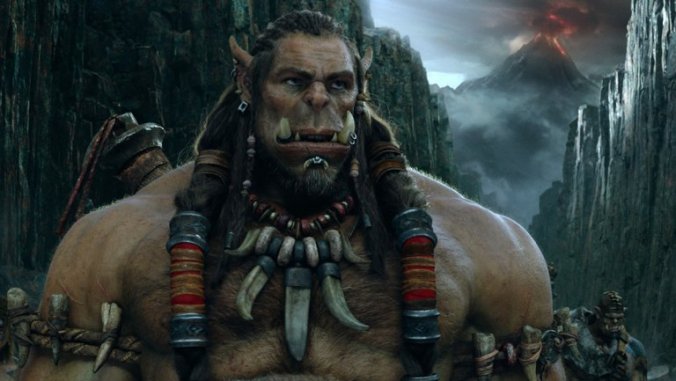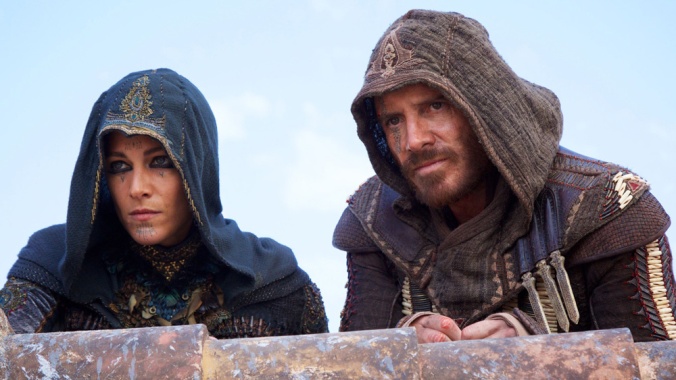Hollywood has tried (and mostly failed) to adapt a video game to the silver screen several times now…34 times in fact, since 1993. The results have not been promising, ranging from just okay (this year’s Rampage and Tomb Raider) to mediocre (Warcraft, Assassin’s Creed) to just atrocious (Postal, Alone in the Dark). As an enthusiast of both video games and films, I want to explore the factors contributing to the shocking lack of quality in the genre, and what challenges are standing in the way of our first truly great video game adaptation.

It’s easy to forget that, barely a decade ago, video gaming was a much-maligned activity in pop culture. The explosion of popularity in video games has come in the past 8-10 years alone, with kid-friendly games like Minecraft and e-Sports like League of Legends helping to eradicate the stigma surrounding the activity. I can’t tell you how strange it is to go from being the nerdy high schooler hiding my interests from my peers, to seeing professional athletes stream Fortnite to an audience of millions. So it’s no surprise that, prior to this decade, Hollywood didn’t really respect the gaming industry or fanbase.
Looking through some of the adaptations from pre-2010, it’s clear that nobody was really trying hard to make something high-quality. Most of them were low-budget, niche titles designed to cater to a specific audience and not a wider market that today’s adaptations are able to. Most were also helmed by people truly passionate about video games, a rare breed. Uwe Boll is the prime example of this, directing nearly a dozen video game adaptations in the 2000’s, most of them god-awful. Major studio executives had little interest in the genre because nobody suspected that there would be a large enough audience to make profits. If the population at large wasn’t taking it seriously, why should they?
But that’s not to say that nobody was interested. Back in 2005, there was an infamous attempt by Microsoft to brute-force a Halo adaptation into production that failed spectacularly. (I strongly recommend reading this Wired article for a behind-the-scenes look at what happened.) This was at the height of the game’s popularity, and looked like it could be the first big-budget, smash-hit IP of the genre. There had also been moderate successes in the past: the Tomb Raider franchise started strong, with studio backing and a big name (Angelina Jolie) attached, though it fizzled out as well; or the Resident Evil horror franchise, which polled poorly with critics but made decent money across four films. Simply put, big studios weren’t willing to accept the idea that video games could have mass appeal outside of niche markets.

Thankfully, we have (mostly) gotten out of that mindset, and we’re in a new era where Hollywood is willing to try and put some muscle behind its attempts. So what has gone wrong in the past decade or so?
It seems studios haven’t quite figured out what kind of video game movie they’re trying to make, or who they’re selling to. A franchise like World of Warcraft, for instance, has a huge player base and seemed like a surefire hit. It had the big-budget blessing of the studio, a wide mythology to choose from, and a proven sci-fi director in Duncan Jones to lead the way. But where the film failed is in understanding what people actually wanted to see out of the film. For a franchise known for its customization and ability to offer a vast array of experiences, we got a generic and cliched fantasy romp that fell into many of the pitfalls that the disappointing The Hobbit trilogy did. To their credit, they did try to craft relatable characters in both the orcs and the humans, but they simply tried to cram too much lore and worldbuilding into the narrative, resulting in a garbled mess. Take a look at the Planet of the Apes reboot franchise for a better execution of their attempts: strong characters and a relatable conflict that didn’t attempt to do too much, while retaining the ability to grow in scope in future films once the foundation is laid. Or look at Rampage, sadly the best-reviewed video game adaptation to date: it may be run-of-the-mill Dwayne Johnson action fare, but it leaned into what makes the franchise exciting without trying to cram a bunch of franchising in. K.I.S.S. – Keep It Simple, Stupid!
One of the major selling points of a video game is player freedom. There is no “wrong” way to enjoy a video game, and players have taken enjoyment out of different things within a single game title. Some people like to stick with the main campaign. Some only want to play online. Some try to collect all the hidden treasure and achieve 100%. Some want to grind to level up their avatar. Some try to speedrun the game, hunting for glitches to complete it as fast as possible…and the list goes on. If you want to learn everything you possibly can about the world, you can; if you don’t care, you can skip it without consequence. Game devs don’t have to decide on one theme or storyline to stick to…they can include ALL of them, and let the player pick and choose which ones they want to experience themselves.
Movies, by contrast, are a decidedly linear format, offering a singular experience for everyone to partake in. Watching a film is a passive activity by nature: you don’t get to control the narrative, it comes to you. That’s not to say that different people can’t enjoy a film for different reasons, but for the most part, there are no options to the way you enjoy a film. Gaming, by contrast, is wholly active; while you are enjoying the narratives that the designers create for you, you are imposing your will upon the world and controlling the action yourself. Power is a big factor here: while video games encourage you to hone your skills and do whatever you want, films encourage the opposite, asking you to sit still and accept what’s happening to you without the ability to change things.

Player independence is a universal concept among video games. As a perfect example, we’ve recently seen a new kind of video game emerge, the point-and-click adventure, the closest approximation to a passive viewing experience in a game. Games like The Walking Dead, Heavy Rain, and Life is Strange mimic the television format, with heavy story elements, strong characters, and minimal action. But even then there is an element of control inherent to the medium: each episode allows the player to interact with the environment and make choices for how the future will play out. You (mostly) decide who lives and dies, who ends up together, and so on. That’s an experience that movies just cannot offer.
So it shouldn’t surprise anyone that a game like Assassin’s Creed could fail so hard. It’s perhaps the worst video game they could have chosen to adapt: a game whose selling point is a player’s ability to explore the map and go wherever they want. If you can see it, you can climb it. They turned it into a generic action CGI-fest with shoddy character development and a self-confused plot. Furthermore, it feels like they tried too hard to make a gripping drama when the main selling point of the franchise is the fun, unique stealth action with the assassins doing sick parkour and fighting one another. Allowing your story to be bogged down by exposition is a recipe for disaster.
Exposition is the most interesting aspect of this debate to me. It’s the thing that sank both Assassin’s Creed and Warcraft in recent years, and it’s been a thorn in the side of adapted screenwriters for decades. How do you handle explaining the vast scope of the world without boring the audience? One other thing that video games are able to do better than films is hiding their exposition. Some players might enjoy watching every cutscene or reading every journal entry when they play a game, while others might want to skip straight to the action. Film has no way around it: you have to sit through it whether you like it or not.
As an example, I played Mass Effect for the first time as a young teen and just blazed through the game, uninterested in all the worldbuilding. But on my second playthrough years later, I took my time, poring over every archive entry and learning as much as I could about the galaxy. The difference is, I had to look for it, and that was its own reward in many ways. Filmmakers can’t expect all audiences to care enough about the minutia, so they often have to make a choice between minimal or overt exposition, or else settle into a middle ground that pleases nobody. This is sadly a case where sticking too closely to the source material is a big negative to a film. And it’s all because the video game medium does not lend itself well to film without heavy attention paid to crafting a something unique that works as a passive experience.
Conclusion

I don’t think anyone believes it’s impossible to create a well-loved film from a video game IP. Hollywood may have failed on several occasions, but things are looking up in recent years and, honestly, they just haven’t been trying for very long. 25 years isn’t much in the film industry, and given 25 more years, it’s basically a guarantee that we’ll get at least one excellent adaptation. A few promising titles are on the horizon, from the Uncharted prequel starring Tom Holland to Detective Pikachu starring Ryan Reynolds. They will have to overcome the many obstacles in their way: establishing a clear identity of their own while correctly translating the medium to a more passive experience, all without losing the agency of its strong characters. It’s a tall order, but I have faith that the smart folks who make movies will figure it out eventually.
What do you think? Should there be more studios attempting to crack the code and create something that everyone can enjoy from a video game franchise?
-AD
All image rights belong to their respective distributors.